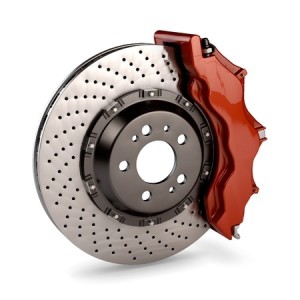 They say that in Minnesota, we really only experience two driving seasons – Winter and Construction. You may prefer one to the other, but something you need during both seasons is a great pair of brakes. Whether the roads are icy or you happen across a pothole repair crew, you’ll want to make sure you can stop in time to keep you and everyone else on the road safe.
They say that in Minnesota, we really only experience two driving seasons – Winter and Construction. You may prefer one to the other, but something you need during both seasons is a great pair of brakes. Whether the roads are icy or you happen across a pothole repair crew, you’ll want to make sure you can stop in time to keep you and everyone else on the road safe.
Bad Brakes
There are a lot of ways to tell if you need new brakes or if there is a larger problem at hand. Does your car:
- Make a grinding noise while stopping?
- Seem to “pulse†or feel “herky jerky†while braking?
- Need a lot of foot pressure to come to a complete stop?
- Make noises while braking at high speeds, or right at the end of your complete stop.
If any of the above conditions are present, make sure you get your car into a shop right away. Ignoring the problem will only make it worse.
Pads and Rotors
As we explained in depth on a previous post, there are two main components at work while you’re braking – Break pads and Rotors.
When you apply the break, your break pads clamp down on the spinning rotor. The kinetic energy from the rotors is converted into thermal energy as the pads slow the rotor. Your forward momentum gets turned into heat as you brake, and if you brake too hard too often, you can damage your pads and rotors.
Like any car part, replacing it before it causes a bigger problem is key when it comes to brake pads and rotors. Take your car in as soon as you hear a grinding noise or feel a difference while breaking, or better yet, replace them at regular intervals. Generally, break pads should be replaced every 15,000-25,000 miles, while rotors should be swapped out every 50,000-75,000 miles.
So if you’re planning a summer road trip or just want to do more driving now that the weather is nice, make sure your brakes are in tip-top shape. Our mechanics know what to look for and can have your brakes back in perfect order in no time. For more information or to schedule a brake inspection, don’t hesitate to contact us!